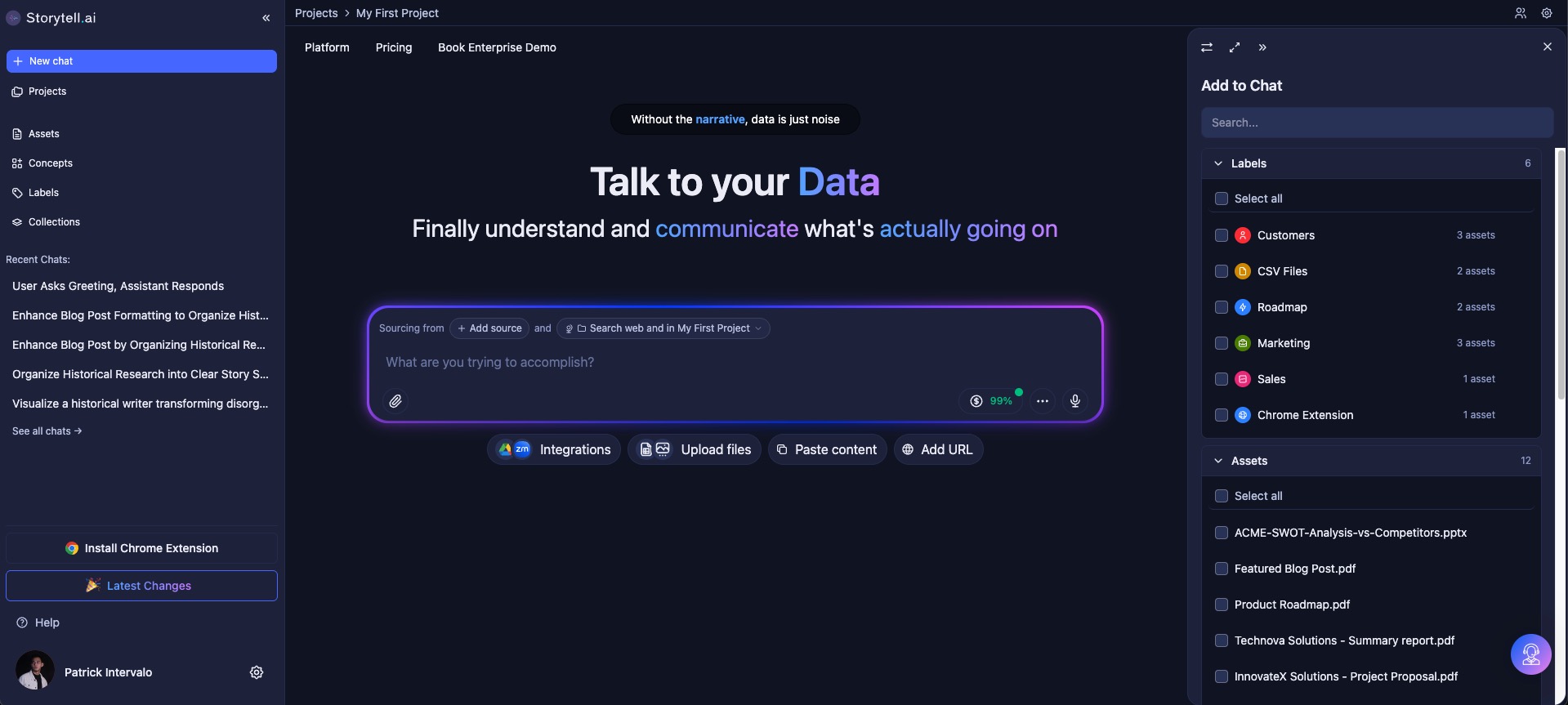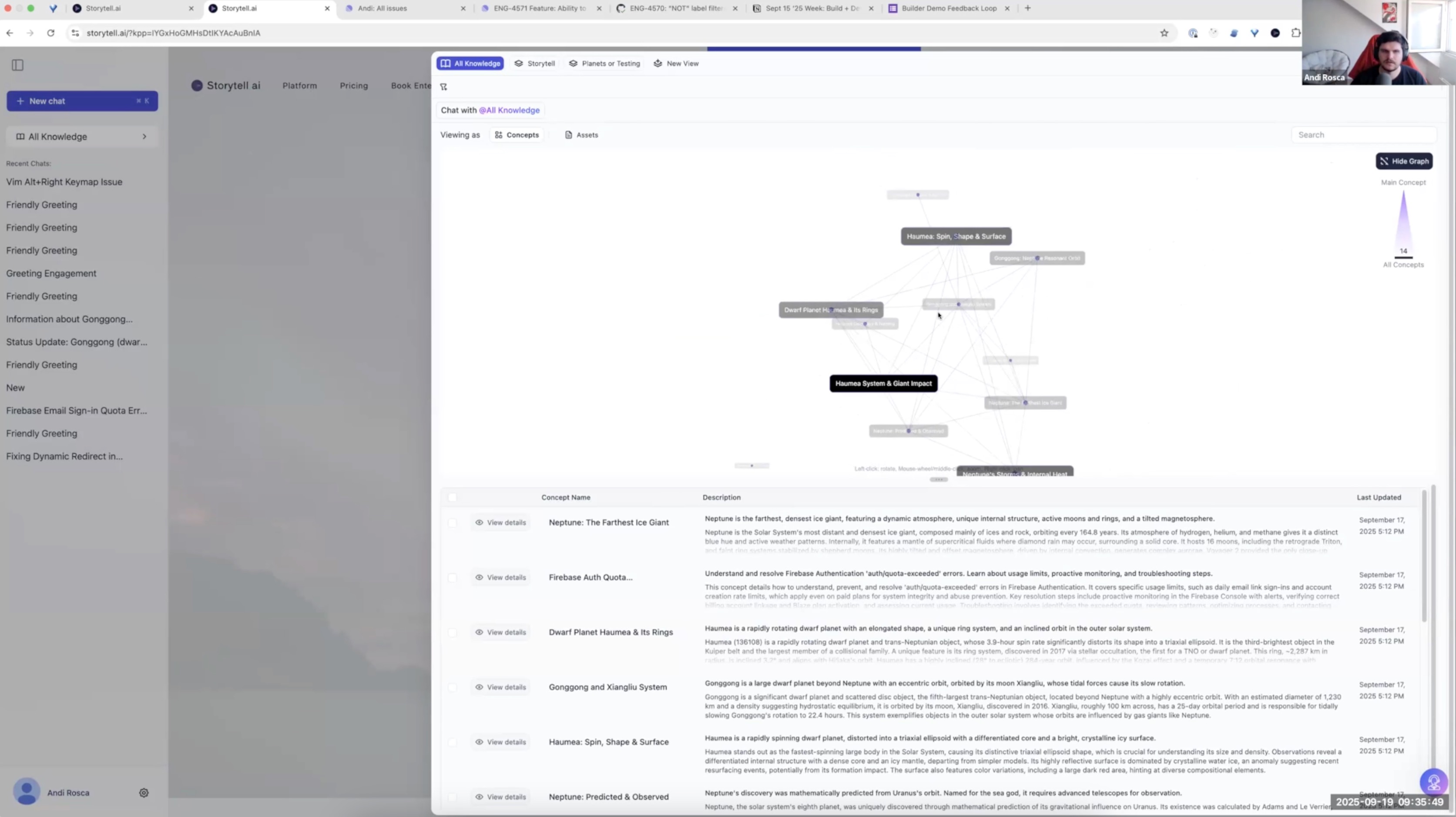Share this post
Building Agentic Storytell: Faster asset search, browser optimization, and credit tracking.
July 11, 2025

During this week's engineering demo, our team shared updates on improving application performance through local storage optimization, enhancing document export capabilities, and providing better visibility into credit usage. These improvements focus on making Storytell more responsive, user-friendly, and transparent.
Improving application reliability with Redis streaming
Alex demonstrated important backend improvements that enhance Storytell's reliability and scalability. The new Redis streaming architecture solves a critical limitation where only one server could handle both receiving user requests and processing workflows.
This improvement means that if a server experiences issues during your chat session, the workflow continues running in the background, and another server can pick up the processing seamlessly. Users will experience more consistent performance even if technical issues occur behind the scenes.
The streaming architecture also enables better scalability, allowing multiple servers to handle HTTP requests from users while multiple workers process the actual AI workflows. This separation ensures that growing user demand won't create bottlenecks in the system.
Enhancing document workflow with PDF exports
Andi showcased the new PDF export functionality for artifacts. Once an artifact finishes streaming and becomes editable, users can now convert these documents to PDF format. The system maintains proper formatting, though complex tables with many columns may occasionally overlap due to the constraints of fitting dynamic web content onto static PDF pages.
A particularly useful feature is the ability to edit documents before exporting them to PDF. Users can make adjustments to the content while still on the page, then export the edited version. While document saving isn't yet available (meaning edits disappear when you refresh the page), this functionality allows users to make final tweaks before creating their PDF export.
Providing transparency with credit tracking
Aaron introduced comprehensive credit tracking and usage visibility features. Users now receive detailed information about their credit consumption at the end of each chat session, including how many models were used, token counts, and credits consumed or saved.
The system also provides intermediate feedback during longer operations like web searches, showing users what queries are being performed and what activities are happening behind the scenes. This transparency helps users understand the value they're receiving and how their credits are being utilized.
Credit balances will update in real-time across browser tabs and team members within the same organization, ensuring everyone has accurate information about their usage and remaining credits.
Looking ahead
These updates represent significant improvements to user experience, system reliability, and transparency. The Feature Base integration streamlines support interactions, Redis streaming ensures consistent performance, PDF exports enhance document workflows, local storage dramatically improves search speed, and credit tracking provides clear usage visibility.
Our engineering team continues testing these features extensively, with team members pairing up to identify any remaining issues before full deployment. These improvements demonstrate our commitment to making Storytell more responsive, reliable, and user-friendly while maintaining the powerful AI capabilities that make the platform valuable for knowledge work.
Become an Alpha or Beta Tester
Get early access to features as we release them by becoming an alpha or beta tester. Here's how to sign up: https://docs.storytell.ai/about/early-access
Gallery
No items found.
Changelogs
Here's what we rolled out this week
No items found.


